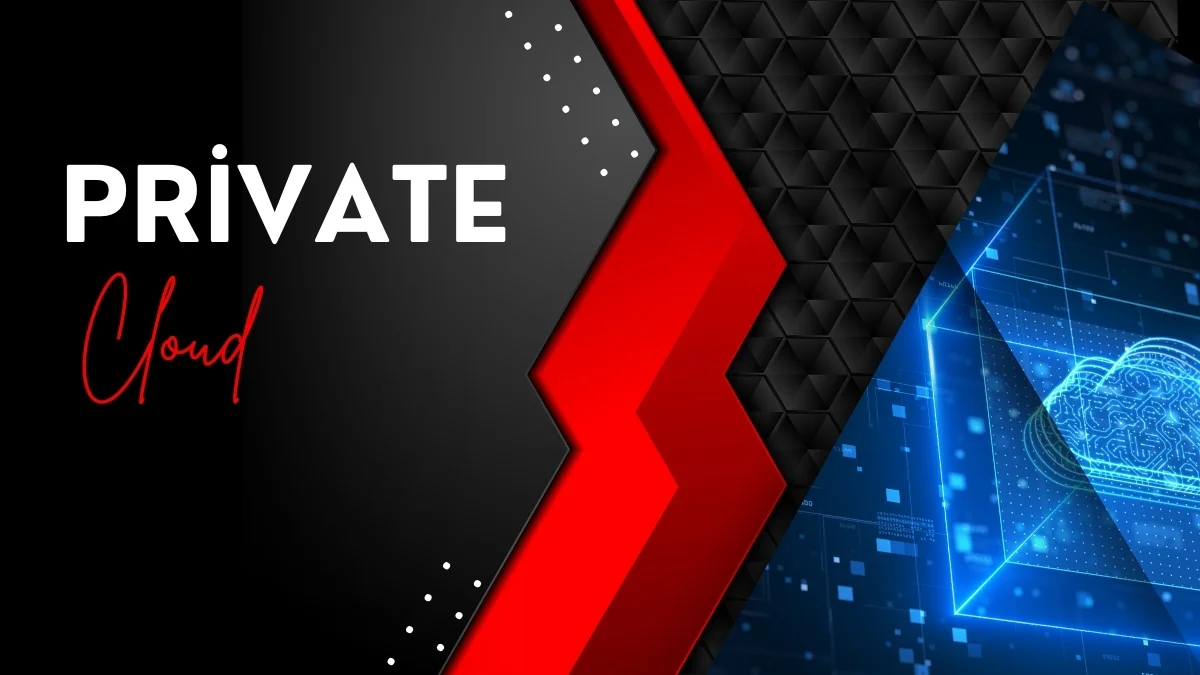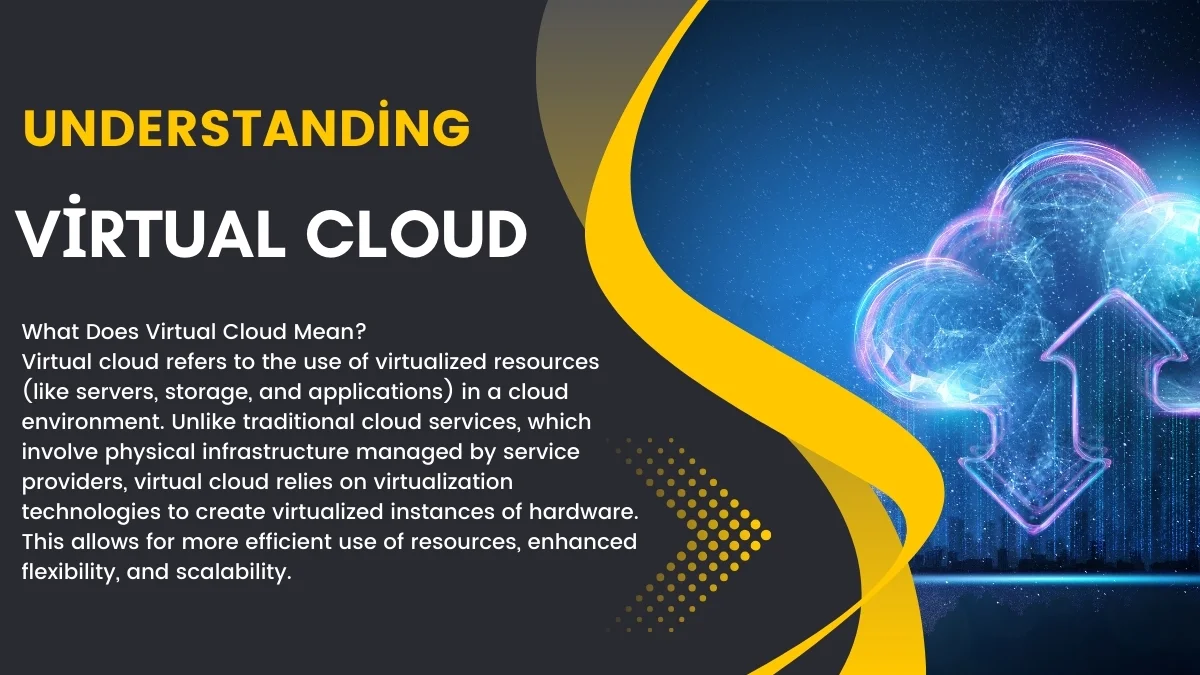What is Private Cloud? A Secure Solution for Your Business Needs
In the digital age, businesses of all sizes are increasingly turning to cloud computing solutions to enhance efficiency, scalability, and flexibility. But while public clouds are widely known, the private cloud is often the preferred choice for businesses that prioritize security, control, and customization. But what exactly is a private cloud, and why is it becoming a go-to solution for many organizations? Let’s dive into this technology and explore its numerous advantages.
Introduction to Private Cloud
What is a Private Cloud?
A private cloud is a cloud computing environment dedicated to a single organization. Unlike public clouds, where resources are shared among multiple users, a private cloud is hosted either on-premises or by a third-party provider, providing exclusive access to the organization’s resources. This setup gives businesses more control over their infrastructure, ensuring better privacy, security, and customization.
How Does a Private Cloud Differ from Public Cloud?
The key difference between a private cloud and a public cloud lies in their ownership and accessibility. A public cloud, like Amazon Web Services (AWS) or Microsoft Azure, is a multi-tenant platform where resources are shared among several businesses. In contrast, a private cloud ensures that the entire infrastructure is dedicated to a single business, offering more customization, security, and control.
Advantages of Private Cloud
Enhanced Security and Control
Security is one of the most significant concerns for businesses storing sensitive data. A private cloud offers better security features because the infrastructure is isolated from other organizations. This means that businesses can implement stricter security policies, such as firewalls, encryption, and access controls, to protect sensitive information.
Customization for Specific Needs
With a private cloud, businesses can customize their infrastructure to meet their unique needs. Unlike public cloud solutions, which offer pre-configured options, private cloud allows you to tailor storage, compute resources, and networking to suit your business’s specific requirements. This level of flexibility is invaluable for organizations with complex workflows.
Compliance and Data Privacy
For industries that must comply with strict regulations—such as healthcare, finance, and government—data privacy and compliance are essential. A private cloud makes it easier to meet these compliance requirements by giving businesses more control over where their data is stored and how it is managed.
Types of Private Cloud Solutions
On-Premises Private Cloud
An on-premises private cloud is hosted within a company’s data center. It provides the highest level of control and customization but also requires significant upfront investment in hardware, software, and maintenance. This solution is ideal for businesses with extensive IT infrastructure and specific security needs.
Hosted Private Cloud
A hosted private cloud is managed by a third-party provider but is still dedicated solely to one organization. The infrastructure is hosted in a provider’s data center, but the resources are not shared with other customers. This option offers more flexibility than an on-premises private cloud and reduces the need for internal IT management.
Managed Private Cloud
In a managed private cloud, a third-party provider manages all aspects of the private cloud infrastructure, from maintenance to security. This solution is ideal for businesses that want the benefits of a private cloud without the responsibility of managing the infrastructure themselves.
How Does Private Cloud Work?
Private Cloud Architecture
A private cloud architecture is typically made up of physical servers, storage, and networking hardware, which are then virtualized using cloud management software. This allows organizations to run multiple virtual machines (VMs) on a single physical server, optimizing resource usage while maintaining security and control.
Virtualization and Resource Allocation
Virtualization is a key feature of private cloud environments. It allows businesses to create virtual machines (VMs) that function like individual servers but share the physical hardware. This efficient resource allocation helps businesses scale their infrastructure without having to purchase additional physical hardware.
Private Cloud vs Public Cloud
Cost Comparison
While private cloud solutions generally have a higher upfront cost due to the need for dedicated infrastructure, they can be more cost-effective in the long term for businesses with specific security and compliance needs. Public clouds, on the other hand, typically operate on a pay-as-you-go model, which can be more cost-effective for businesses with less demanding infrastructure requirements.
Flexibility and Scalability
Public clouds are often seen as more scalable and flexible due to their vast network of shared resources. However, private clouds offer more flexibility when it comes to customization. While scaling in a private cloud might require more planning and investment, it can be tailored to an organization’s exact needs.
Choosing the Right Private Cloud Provider
Factors to Consider
When choosing a private cloud provider, businesses should consider factors like security features, compliance support, scalability, and the provider’s ability to meet specific business needs. Additionally, service-level agreements (SLAs) should be reviewed to ensure adequate performance and reliability.
Top Private Cloud Providers
Some of the top providers offering private cloud solutions include IBM Cloud, VMware, and Microsoft Azure. These providers offer robust, secure, and scalable solutions tailored to meet the needs of businesses with high privacy and customization requirements.
Common Use Cases for Private Cloud
Business Applications and Workloads
A private cloud is often used to host critical business applications such as customer relationship management (CRM) systems, enterprise resource planning (ERP) software, and data analytics platforms. These applications require high security, performance, and reliability—qualities that private cloud solutions excel at.
Data Security and Backup Solutions
For businesses concerned about data security, private cloud offers an excellent solution. With dedicated infrastructure, businesses can ensure that their data is securely backed up and protected against loss, while also complying with regulatory standards for data privacy.
Conclusion
The private cloud offers numerous benefits for businesses looking for enhanced security, control, and customization. While it comes with higher upfront costs and management requirements compared to public clouds, the flexibility it offers makes it an ideal solution for organizations with specific infrastructure, security, and compliance needs. If you’re considering moving your business to the cloud, the private cloud could be the solution you’re looking for.
Frequently Asked Questions (FAQs)
- What is the main difference between a private cloud and a public cloud?
- A private cloud is dedicated to a single organization, offering more control, security, and customization, while a public cloud shares resources among multiple organizations.
- Is a private cloud more expensive than a public cloud?
- Yes, private cloud solutions typically require a higher upfront investment due to dedicated infrastructure, but they can be more cost-effective in the long term for businesses with specific needs.
- Can a private cloud be used by small businesses?
- While private cloud solutions are often more suited to larger organizations, small businesses can also benefit from them, especially if they have stringent security or compliance requirements.
- What are the main advantages of using a private cloud?
- The key advantages of private cloud are enhanced security, greater control, customization options, and compliance with strict data privacy regulations.
- How do I choose the best private cloud provider for my business?
- When selecting a provider, consider factors like security features, scalability, compliance support, and the provider’s ability to meet your business’s specific requirements.








